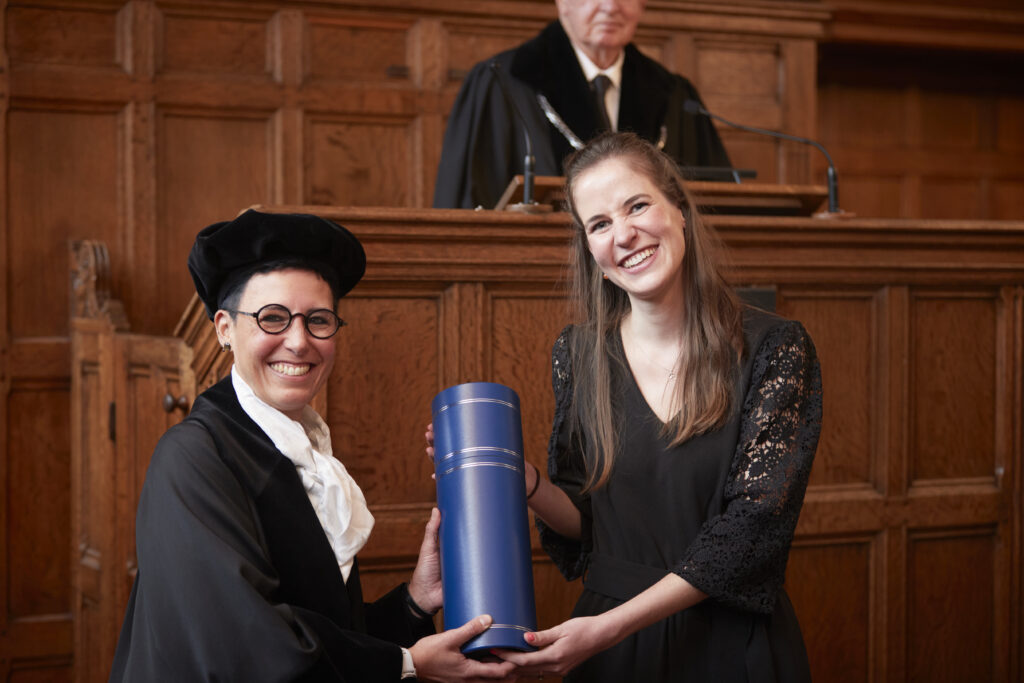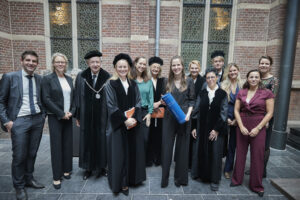PhD Defense Simone Dobbelaar: Helping me, helping you. Behavioral and neural development of social competence from childhood to adolescence

On October 26th, Simone Dobbelaar defended her dissertation entitled “Helping me, helping you. Behavioral and neural development of social competence from childhood to adolescence.”
Summary of the dissertation
Why do some children easily find their way in social situations and are satisfied with their social lives, while others experience more difficulties? One key component that may explain this is social competence: the ability to fulfill both own and other’s social goals, for example in social interactions. This thesis focused on individual differences in social competencedevelopment from childhood to adolescence, an important developmental period that is marked by an increase in social experiences and interactions. To understand individual differences in social competence development, I examined contextual, developmental, environmental and neurobiological influences on aggressive and prosocial responses to social evaluation. Moreover, I examined whether the co-occurrence of aggression and prosocial behavior may work as predictor for developmental outcomes such as wellbeing later in time.
The results of this thesis can be described in three main findings. First, findings showed that there were robust neural processes related to the processing of social feedback and subsequent aggression already in middle childhood. Additionally, this thesis revealed that the period between childhood and adolescence is important for the behavioral and neural development of inhibition of aggression following negative, neutral and positive social feedback. Aggression following social feedback decreased towards adolescence, but aggression following positive feedback decreased earlier in childhood than aggression following negative feedback. Moreover, the involvement of the dorsolateral prefrontal cortex, known for its role in executive functioning and inhibition, decreased over time. Finally, results indicated that the co-occurrence of aggression following rejection of oneself and prosocial behavior following observed rejection of others may possibly protect against externalizing behaviors and promote wellbeing. Together, this thesis highlights the importance of examining the interplay of developmental processes across social contexts to understand mental health outcomes later in adolescence.
Simone Dobbelaar will continue as a post-doc for the GUTS project. Within GUTS, she will focus on the role of peer networks and social dynamics in relation to neural processes related to self regulation.
Promotors:
Michelle Achterberg, Anna van Duijvenvoorde and Eveline Crone.
You can find an interview with Simone regarding her research in the article titled “Een beetje agressie helpt kinderen in hun sociale ontwikkeling, ontdekte Simone Dobbelaar tijdens haar promotie.” To access the interview, please follow this link: Interview with Simone Dobbelaar.

Contact
Erasmus University Rotterdam
Mandeville Building T13
Burgemeester Oudlaan 50
3062 PA Rotterdam, the Netherlands

